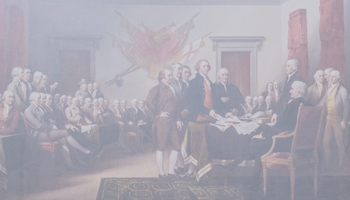
FTZ’ine August 2022
August 2, 2022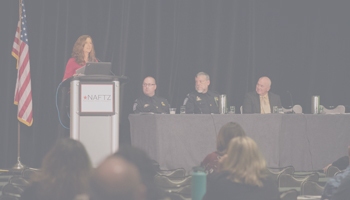
FTZ’ine October 2022
October 4, 2022What I Did This Summer
Well, that was fast. With the Labor Day holiday just days away, your Nation’s Capitol can now look back at its accomplishments and disappointments of hot, dry Summer 2022.
There were legislative successes. First, Congress passed the CHIPS and Science Act to stimulate the reshoring of semiconductor manufacturing in the United States. Then, seemingly out of nowhere, a compromise was reached on a landmark spending plan to address climate change and health care costs.
There were diplomatic difficulties. A visit to Taiwan by House Speaker Nancy Pelosi sent China into a tailspin that resulted in missiles fired into important international shipping lanes. The U.S. government delivered HIMARS tactical missile launchers to Ukraine which led Russia to further ratchet up the conflict with threats to a large nuclear power plant and a call for a dramatic increase in Russian troop strength. As Europe struggles with its dependence on Russia for energy, hydrocarbon sales now earn Moscow $20 billion a month from oil and gas exports, helping compensate for Western sanctions and fund the conflict in Ukraine.
Fall will bring a return to school and uncertainty for international traders as the events of a sunny summer combine for an overcast global economic outlook in the coming months.

Top Story: Powell Clouds U.S. Economic Outlook
Tech Tip: Option For Moving Zone To Zone In The Same Port
Ever since the in-bond regulations were updated to require electronic filing, zones have been asking CBP how to accomplish this for zone-to-zone transfers in the same port. Some zones may now have an option.
Because a movement between FTZs does not cross the U.S. border, the BOL is not registered with CBP. This has prevented the use of the electronic Permit to Transfer (ePTT) process because each in-bond request must have a BOL number registered in the Automated Commercial Environment (ACE).
One way to work around this technical limitation is for the receiving zone to file an individual zone admission prior to the goods being transported. In doing so, the BOL to be provided, according to the e214 CATAIR, is the “domestic carrier’s bill of lading or originating Zone Operator declared bill of lading reported on the In-Bond movement.” On such an admission, no other manifest data is required, but doing this makes the BOL visible in ACE. Then the ePTT can be electronically filed on that BOL. That eliminates the paper PTT process for CBP Officers and zone administrators.
Before you try this ePTT option, be sure to address carrier expectations with your port. If you have question about this or other in bond procedures, please send them to us at Info@iscm.co.


China U.S. Relations Continue To Decline
Chassis Maintenance Issue Stalls West Coast Negotiations
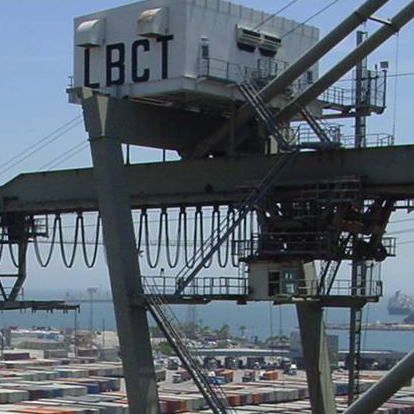
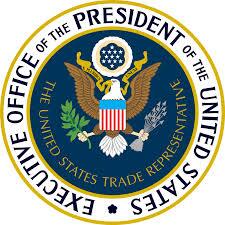
Economic Outlook, China Threats Complicate Section 301 Decision
Now Planes Are In Short Supply Too . . .


IRA EV Provision Irks Friendshoring Partners
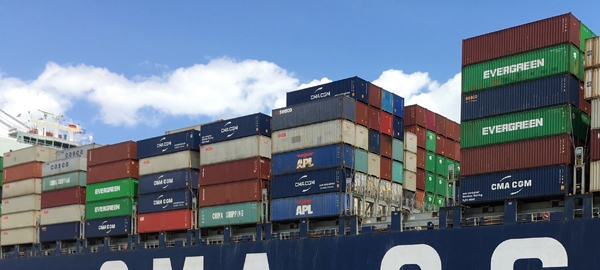
FTZ Staff Activity
- FTZ Board Staff processed a Minor Boundary Modification (S-111-2022) in FTZ 32 on behalf of FOH, Inc., in Miami, FL on July 7, 2022
- FTZ Board Staff processed a Minor Boundary Modification (S-112-2022) in FTZ 281 on behalf of Mass Parts LLC, in Medley, FL on July 8, 2022
- FTZ Board Staff processed a Minor Boundary Modification (S-113-2022) in FTZ 241 on behalf of Almod Diamonds Ltd., Inc., in Miramar, FL on July 8, 2022
- FTZ Board Staff processed a Minor Boundary Modification (S-114-2022) in FTZ 94 on behalf of Transplace Mexico, in Laredo, TX on July 11, 2022
- FTZ Board Staff processed a Minor Boundary Modification (S-115-2022) in FTZ 18G on behalf of Tesla, Inc., in Stockton, CA on July 12, 2022
- FTZ Board Staff processed a Minor Boundary Modification (S-116-2022) in FTZ 8I on behalf of Whirlpool Corporation, in Clyde, OH on July 12, 2022
- FTZ Board Staff processed a Minor Boundary Modification (S-117-2022) in FTZ 151E on behalf of Whirlpool Corporation, in Fostoria, OH on July 12, 2022
- FTZ Board Staff processed a Minor Boundary Modification (S-118-2022) in FTZ 70Y on behalf of BW Retail Solutions, LLC, in Chesterfield and Richmond, MI on July 14, 2022
- FTZ Board Staff processed a Minor Boundary Modification (S-119-2022) in FTZ 12C on behalf of Black & Decker (U .S.), Inc., in Mission/Pharr, TX on July 19, 2022
- FTZ Board Staff processed a Minor Boundary Modification (S-120-2022) in FTZ 59A on behalf of Kawasaki Motors Manufacturing Corporation, in Lincoln, NE on July 20, 2022
- FTZ Board Staff processed a Minor Boundary Modification (S-121-2022) in FTZ 29S on behalf of UPS Supply Chain Solutions, Inc., in Shepherdsville, KY on July 21, 2022
- FTZ Board Staff processed a Minor Boundary Modification (S-122-2022) in FTZ 149H on behalf of Maxter Healthcare Inc., in Rosharon, TX on July 25, 2022
- FTZ Board Staff processed a Minor Boundary Modification (S-123-2022) in FTZ 26V on behalf of BW Retail Solutions, LLC, in McDonough, GA on July 25, 2022
- FTZ Board Staff processed a Minor Boundary Modification (S-124-2022) in FTZ 26 on behalf of DSV Air and Sea, Inc., in Atlanta, GA on July 26, 2022
- FTZ Board Staff processed a Minor Boundary Modification (S-125-2022) in FTZ 18I on behalf of Bloom Energy Corporation, in Newark, CA on July 27, 2022
- FTZ Board Staff processed a Minor Boundary Modification (S-126-2022) in FTZ 57D on behalf of Exela Pharma Sciences, LLC, in Lenoir, NC on July 27, 2022
- FTZ Board Staff processed a Minor Boundary Modification (S-127-2022) in FTZ 32 on behalf of Hublot of America, Inc., in Miami, FL on July 28, 2022
- FTZ Board Staff processed a Minor Boundary Modification (S-128-2022) in FTZ 9 on behalf of Hawaii Fueling Facilities Corporation - Hilo Airport, in Hilo, HI on July 28, 2022
- FTZ Board Staff processed a Minor Boundary Modification (S-129-2022) in FTZ 9 on behalf of Hawaii Fueling Facilities Corporation - Kona, in Kona, HI on July 28, 2022
- FTZ Board Staff processed a Minor Boundary Modification (S-130-2022) in FTZ 9 on behalf of Hawaii Fueling Facilities Corporation - Kahului Airport, in Kahului, HI on July 28, 2022
- FTZ Board Staff processed a Minor Boundary Modification (S-131-2022) in FTZ 9 on behalf of Hawaii Fueling Facilities Corporation - Lihue Airport, in Lihue, HI on July 28, 2022
- FTZ Board Staff processed a Minor Boundary Modification (S-132-2022) in FTZ 147 on behalf of Newell Brands Distribution, LLC, in Newville, PA on August 1, 2022
- FTZ Board Staff processed a Minor Boundary Modification (S-133-2022) in FTZ 57 on behalf of Newell Brands Distribution, LLC, in Gastonia, NC on August 1, 2022
- FTZ Board Staff processed a Minor Boundary Modification (S-134-2022) in FTZ 43H on behalf of DENSO Manufacturing Michigan, Inc., in Battle Creek, MI on August 2, 2022
- FTZ Board Staff processed a Minor Boundary Modification (S-135-2022) in FTZ 49Q on behalf of Kinder Morgan Liquids Terminals, LLC, in Perth Amboy, NJ on August 4, 2022
- FTZ Board Staff processed a Minor Boundary Modification (S-136-2022) in FTZ 180 on behalf of Prism Team Services Inc. of The East Bay, in Hayward, CA on August 4, 2022
FTZ Board Activity
- Piramal Pharma Solutions submitted a notification of proposed production activity for pharmaceutical products within FTZ 35 in Sellersville, Pennsylvania. MORE
- The Land of Sky Regional Council submitted an application to establish a Foreign-Trade Zone in Western North Carolina under the alternative site framework. MORE
- Albion Laboratories, Inc. submitted a notification of proposed production activity for mineral amino acid chelates within FTZ 30 in Ogden, Utah. MORE
- Expeditors International of Washington, Inc. received approval for the expansion of Subzone 68A in El Paso, Texas. MORE
- Lucid Motors USA, Inc. submitted a notification of proposed production activity for electric automobiles and subassemblies within FTZ 75 in Casa Grande and Tempe, Arizona. MORE
- CoLinx, LLC received authorization of production activity for spherical roller bearing kits within FTZ 148 in Crossville, Tennessee. MORE
- Oldach Associates, LLC submitted an application for the expansion of Subzone 61Z in Cataño, Puerto Rico. MORE
- Burger Boat Company submitted an application for subzone status for its facility within FTZ 167 in Brown County, Wisconsin. MORE
- M.M.O. Companies, Inc. received authorization of production activity for disassembly of firearms and ammunition within FTZ 31 in Mascoutah, Edwardsville and Collinsville, Illinois. MORE
- DMA Sales, LLC received approval for subzone status as subzone 21I for its facilities in Marion and Nichols, South Carolina. MORE
- Swafford Warehousing, Inc. received authorization of production activity for medical kits within FTZ 38 in Greer, South Carolina. MORE
- Flemish Master Weavers submitted a notification of proposed production activity for machine-made woven area rugs within FTZ 186 in Sanford, Maine. MORE
- Sager Electronics received approval for the expansion of Subzone 168G in Lewisville, Texas. MORE
- Exela Pharma Sciences, LLC submitted a notification of proposed production activity for pharmaceutical products within FTZ 57 in Lenoir, North Carolina. MORE
- Hyundai Motor Manufacturing Alabama, LLC submitted a notification of proposed production activity for passenger automobiles, trucks, and cargo trucks within FTZ 222 in Montgomery, Alabama. MORE
- Shipbuilders of Wisconsin, Inc., d/b/a Burger Boat Company submitted a notification of proposed production activity for construction and repair of vessels and hulls within FTZ 167 in Manitowoc, Wisconsin. MORE
- Wyeth Pharmaceuticals, LLC submitted a notification of proposed production activity for COVID-19 vaccine within FTZ 27 in Andover, Massachusetts. MORE
- AIAC International Pharma, LLC received authorization of production activity for pharmaceutical products within FTZ 61 in Arecibo, Puerto Rico. MORE
- Epson Portland, Inc. submitted a notification of proposed production activity for inkjet ink printer bottles (empty and filled) within FTZ 45 in Hillsboro, Oregon. MORE
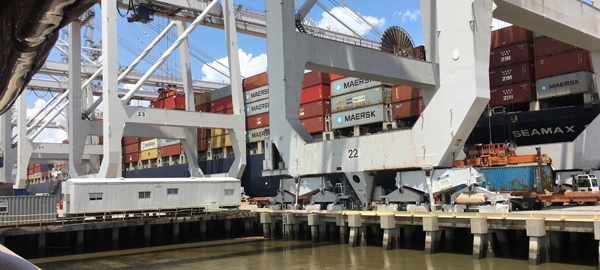
What I Did This Summer
Well that was fast. With the Labor Day holiday just days away your Nation’s Capitol can now look back at its accomplishments and disappointments of hot, dry Summer 2022.
There were legislative successes. First, Congress passed the CHIPS and Science Act to stimulate the reshoring of semiconductor manufacturing in the United States. Then, seemingly out of nowhere, a compromise was reached on a landmark spending plan to address climate change and health care costs.
There were diplomatic difficulties. A visit to Taiwan by House Speaker Nancy Pelosi sent China into a tailspin that resulted in missiles fired into important international shipping lanes. The U.S. government delivered HIMARS tactical missile launchers to Ukraine which led Russia to further rachet up the conflict with threats to a large nuclear power plant and a call for a dramatic increase in Russian troop strength. As Europe struggles with its dependence on Russia for energy, hydrocarbon sales now earn Moscow $20 billion a month from oil and gas exports, helping compensate for Western sanctions and fund the conflict in Ukraine. Fall will bring a return to school and uncertainty for international traders as the events of a sunny summer combine for an overcast global economic outlook in the coming months.

